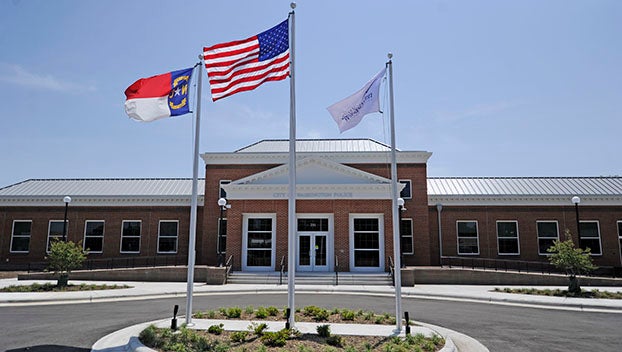Local students outscore N.C. peers
Published 1:27 am Thursday, January 19, 2012

Kathy Clark, with student Jalen Harper, at Southside High School. Clark is one of many Career Technical Education instructors across Beaufort County Schools who have invested in their students, supporting their efforts to attain certification in various areas. (Contributed Photo)
It’s good to get a high school diploma. It’s even better if a graduate can offer a Career Readiness Certification (CRC) to go with it.
Advanced preparation for the after-high school job market has Beaufort County high school students out-achieving their peers in North Carolina’s larger counties. During the 2010-2011 school year, local students earned a total of 935 nationally recognized certifications through the new Career Technical Education program, outscoring 95 out of 100 counties in the state.
The program is designed to give a leg up to those students who plan to head into the workforce directly after high school graduation by teaching them, and testing them on, relevant job skills.
“I think it gives them an edge,” explained Christy Harris, Director of Career Technical Education for Beaufort County Schools. “I can’t see why any employer wouldn’t see the value in it.”
According to Harris, many employers are seeing the value in certifications as part of the job-application process, including Potash Corp. – Aurora, which requires Career Readiness Certifications (CRCs) for entry-level positions. Of the 18 certifications the state recognizes, Beaufort County’s CTE program offers six: National Center for Construction Education Research (NCCER) and OSHA credentials for students hoping to pursue trade and industry jobs; North Carolina Nurse Aide credentials; Microsoft Office Specialist degrees; restaurant-recognized ServSafe Manager Food Protection certifications; and CRCs for those in the Welding II and internship programs.
“We have always been and will always be as equally dedicated to the success of workforce-bound students as we are of those headed to a post-high school education,” Beaufort County Schools Superintendent Don Phipps explained in a recent press release.
That dedication was reflected in the way both teachers and students embraced the program.
“It really has to do with how committed people were toward certification — teachers and students,” said Harris.
According to Harris, the CTE program involvement puts Beaufort County on the cutting edge of what’s new in education, as reflected by the number of certifications awarded. In the Northeast region, Beaufort County placed first in numbers, while Pitt County ran a distant second with 406.
Though the larger counties offered a selection of certifications, it was the smaller counties that pushed the program and got results.
“It’s not the counties you think,” said Harris, in reference to those with the highest numbers. “We beat all the big counties.”
Onslow County Schools (3,266); Wayne County Public Schools (2,007); Catawba County Schools (1,100); and Public Schools of Robeson County Schools (1,045) were the only four counties statewide that awarded more certifications than Beaufort County.
A team effort once the Career Technical Education department committed to the program — from teachers, staff, students — put Beaufort County Schools on the state charts.
“We were committed to giving our students more,” said Harris. “We believe in giving the students more than just a diploma.”




